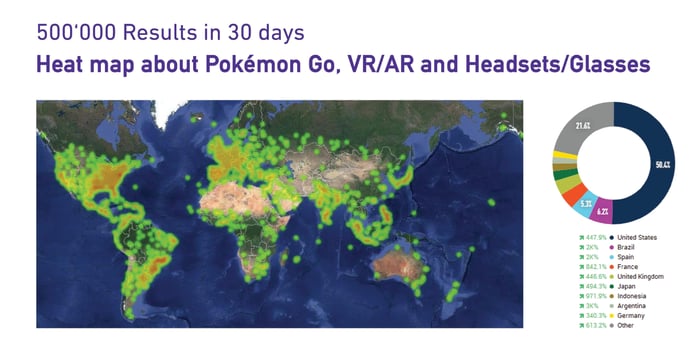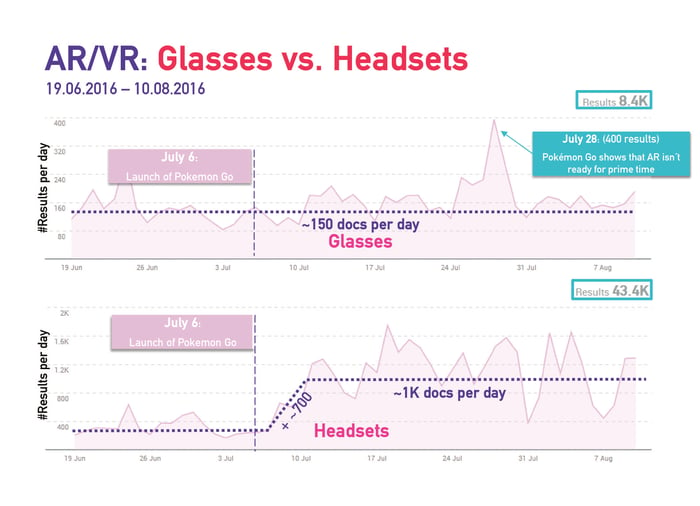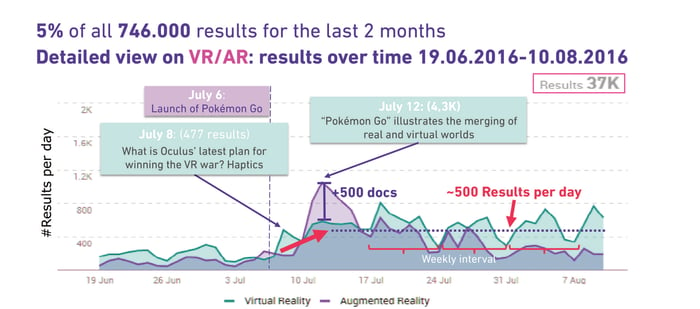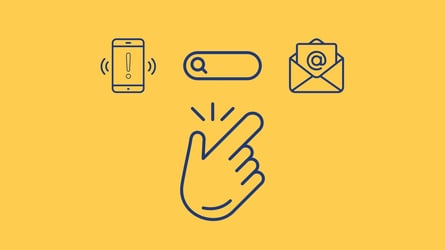The beginning of July saw swarms of people converging on random spots around the countryside and even the most fervent opponents of physical activity suddenly started walking everywhere – it was the launch of Pokémon Go, and everyone went crazy.
The location-based augmented reality (AR) mobile game enables users to capture, train and fight with virtual creatures, so-called Pokémons, who appear on the screen as if they were in the same physical location as the player.
Within days of its release, the game shattered app store records and was estimated to have reached over 100 million downloads by August.
Brands jumped on the bandwagon in record speed to market everything from books
to apples
to portable phone chargers.
T-Mobile even launched a promotion promising players unlimited free data for the game for one year, Yelp added a PokéStop filter to its search function and many local businesses profited by drawing crowds of players to their shops with so-called lures.
While the hype and the real-time marketing is starting to fade, some businesses have gained lasting insights and product development perspectives from the discussions around the game and its technology.
Among them is Merck KGaA, Darmstadt, Germany, a leading science and technology company that specializes in healthcare, life science and performance materials. Merck is using the Talkwalker platform to gain insights from consumer discussions online and on social media.
Analyzing the Pokémon Go hype
According to a recent analysis done by Merck KGaA, Darmstadt, Germany, Pokémon Go has generated around 25 million results on social media in the first month, with an increase of 400% within the first week of its release (July 5 – July 12).
Using social analytics, the company studied the impact of Pokémon Go on the virtual and augmented reality discussion in general, as well as its influence on the discussion around VR glasses and headsets.

Results show that both augmented and virtual reality (VR) discussions increased on social media in the wake of the launch. However, while discussions around AR dropped again in the next weeks, VR remained at a higher level.

Social media engagement (per result) has clearly increased for AR, VR and glasses compared to before the Pokémon launch.
While Twitter was the most common media type for all topics, the app has had an impact on the media footprints of AR, VR and headsets, typically by a factor of 2x-4x.

After this first AR/VR analysis, Merck found that Pokémon Go changed the consumer experience and behaviour within a few days and the app has brought augmented reality from an expert-focused technology to the broad consumer market.
This represents an impressive case of the power of combining available technologies (in this instance a camera, GPS, motion sensors and smartphone displays) to change consumer experience and behaviour.
Leveraging consumer insights internally, for partners, and the whole industry
Through analyzing and applying vast amounts of data on the subject, Merck KGaA, Darmstadt, Germany can leverage real-time insights and can keep its external partners updated on the dynamic consumer market. The company is using Social Media Mining in a variety of ways with the objective to create value internally, for their partners, and for the whole industry.
If you want to find out more about how the world’s oldest chemical company is using this technology, download our new case study “Big data for B2B”.




